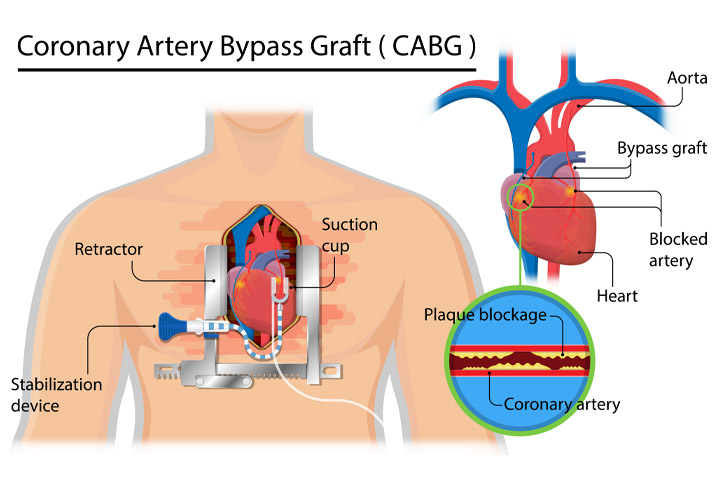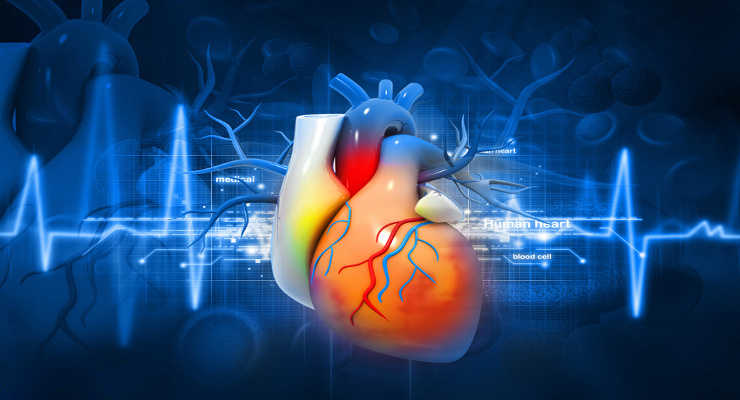Additional Credit
Among the important extras we offer as part of the Additional Credit are the following:
-
Site Tourism For The Patient & Attendant
-
Airport Pick & Drop Service
-
Ambulance service at airport
-
Priority appointments with The Doctor
-
Cancel Easily Anytime with Full Refund
-
Room Upgradation
-
Free Online Doctor Consultation Valued at USD 20
-
Free hotel Stay for 5 to 7 days Accordingly
-
Welcome Kit at Arrival
-
Interpreter
-
Medical Visa Assistance
What is Included?
- Doctor consultation charges
- Lab tests and diagnostic charges
- Room charges inside hospital during the procedure
- Surgeon Fee
- Cost of implant
- Nursing charges
- Hospital surgery suite charges
- Anesthesia charges
- Routine medicines and routine consumables (bandages, dressings etc.)
- Food and Beverages inside hospital stay for patient and one attendant.
What is not Included?
- Extra Radiology Investigations
- Healthcare Professionals Charges of other consultations.
- Other Requested Services such as Laundry etc.
- Additional Pharmaceutical Products and Medicines After Discharge from Hospital.
- Management of Conditions Unrelated to Procedures or Pre-Existing.
- The cost of any additional implants will be in addition to the package cost.
Package Description
CABG:
The operation known as coronary artery bypass graft surgery (CABG) is performed to treat coronary artery disease. The narrowing of the coronary arteries ? the blood channels that give oxygen and nutrients to the heart muscle ? is known as coronary artery disease (CAD). A build-up of fatty material within the walls of the arteries causes CAD. This build-up narrows the interior of the arteries, reducing oxygen-rich blood flow to the heart muscle.
One method of treating blocked or constricted arteries is to use a section of a healthy blood vessel from another part of your body to bypass the blocked portion of the coronary artery. Blood vessels, or grafts, utilised in the bypass technique might be sections of a leg vein or a chest artery. It's also possible to utilise an artery from your wrist. One end of the graft is attached above the obstruction, while the other end is attached below the blockage. The new graft allows blood to circumvent the obstruction and reach the heart muscle. Coronary artery bypass surgery is the name for this procedure.
Disease Overview:
Coronary artery disease (CAD)
Coronary artery disease occurs when your heart's primary blood arteries become damaged or diseased. Coronary artery disease is caused by cholesterol-containing deposits (plaques) in your coronary arteries and inflammation.
The coronary arteries feed your heart with blood, oxygen, and nourishment. Plaque development can restrict these arteries, reducing blood flow to the heart. Reduced blood flow may eventually result in chest discomfort (angina), shortness of breath, or other signs and symptoms of coronary artery disease. A heart attack might be caused by a total blockage.
You may not detect a problem until you have a large blockage or a heart attack since coronary artery disease commonly develops over decades. However, there are things you may do to prevent and cure coronary artery disease.
A healthy way of living can have a significant influence.
Disease Signs and Symptoms:
If your coronary arteries constrict, they won't be able to provide your heart with enough oxygen-rich blood, especially when it's working hard, as it is during exercise. Reduced blood flow may not create any symptoms at first. However, when plaque builds up in your coronary arteries, you may experience the following signs and symptoms of coronary artery disease:
Pain in the chest (angina). As if someone were standing on your chest, you may feel pressure or stiffness in your chest. Angina is a kind of chest discomfort that often appears on the centre or left side of the chest. Angina is most commonly brought on by physical or mental strain. After ceasing the stressful activity, the discomfort normally goes away within minutes. The discomfort felt in the neck, arm or back in some people, particularly women, might be mild or severe.
Disease Causes:
If your coronary arteries constrict, they won't be able to provide your heart with enough oxygen-rich blood, especially when it's working hard, as it is during exercise. Reduced blood flow may not create any symptoms at first. However, when plaque builds up in your coronary arteries, you may experience the following signs and symptoms of coronary artery disease:
Pain in the chest (angina). As if someone were standing on your chest, you may feel pressure or stiffness in your chest. Angina is a kind of chest discomfort that often appears on the centre or left side of the chest. Angina is most commonly brought on by physical or mental strain. After ceasing the stressful activity, the discomfort normally goes away within minutes. The discomfort felt in the neck, arm or back in some people, particularly women, might be mild or severe .
Breathing problems. Shortness of breath or excessive weariness may occur if your heart is unable to pump enough blood to fulfil your body's demands.
A heart attack has occurred. A heart attack is caused by a totally clogged coronary artery. Crushing pressure in your chest, pain in your shoulder or arm, and shortness of breath and perspiration are all typical indications and symptoms of a heart attack.
Women are somewhat more likely than males to suffer less conventional heart attack signs and symptoms, such as neck or jaw discomfort. They may also have additional symptoms including shortness of breath, exhaustion, and nausea.
A heart attack can happen without any warning signs or symptoms.
Disease Diagnosis:
The doctor will inquire about your medical history, perform a physical examination, and prescribe normal blood tests. He or she may also recommend one or more diagnostic tests, such as:
An EKG is a type of electrocardiogram (ECG). An electrocardiogram (ECG) is a test that monitors electrical impulses as they pass through your heart. An ECG can often reveal signs of a past heart attack or a heart attack that is now occurring.
Echocardiogram. Sound waves are used to create pictures of your heart in an echocardiogram. Your doctor can use an echocardiography to see if all portions of your heart wall are contributing regularly to your heart's pumping action.
Parts that move slowly might have been injured during a heart attack or aren't getting enough oxygen. This might indicate coronary artery disease or other problems.
Stress test with exercise Your doctor may advise you to walk on a treadmill or ride a stationary bike during an ECG if your signs and symptoms are more common when you exercise. While you're doing these workouts, an echocardiography may be performed. This is referred to as a stress echo. Medication to boost your heart may be used instead of exercise in some circumstances.
A nuclear stress test has been performed. This test is comparable to an exercise stress test, however the ECG records are accompanied by visuals. At rest and under stress, it monitors blood flow to your heart muscle. A tracer is put into your circulation, and sophisticated cameras can identify parts of your heart where blood flow is reduced.
Catheterization and angiography of the heart. A doctor carefully inserts a catheter into an artery or vein in your groyne, neck, or arm and up to your heart during cardiac catheterization. The catheter is guided to the proper place using X-rays. Dye is sometimes injected into the catheter. The dye enhances the visibility of blood arteries on pictures and highlights any obstructions.
A balloon can be put via the catheter and inflated to enhance blood flow in your coronary arteries if you have a blockage that has to be treated. The dilated artery is usually kept open using a mesh tube (stent).
A cardiac CT scan is a type of imaging that is used to look at the inside of the heart A cardiac CT scan might reveal calcium deposits in your arteries, which can constrict them. Coronary artery disease is a possibility if a significant quantity of calcium is found.
A CT coronary angiography can provide comprehensive pictures of your heart arteries by administering a contrast dye through IV during a CT scan.
Disease Treatment:
Coronary artery disease is generally treated with a combination of lifestyle modifications, medicines, and medical procedures.
Changes in your way of life
Making the following healthy lifestyle adjustments will help promote healthier arteries:
- Stop smoking.
- Consume nutritious foods.
- Exercise on a regular basis.
- Get rid of the extra pounds.
- Reduce your stress levels.
Procedures to enhance blood flow and restore it
Sometimes a more active approach is required. Here are several possibilities:
Stent implantation and angioplasty (percutaneous coronary revascularization)
A long, thin tube (catheter) is inserted into the narrowed section of your artery by your doctor. The constricted region is reached by passing a wire with a deflated balloon via the catheter. After then, the balloon is inflated, forcing the deposits against the artery walls.
A stent is frequently left in the artery to keep it open. The majority of stents deliver medicine over time to help keep the arteries open.
Bypass surgery for the coronary arteries
A graft is a conduit from another region of your body that is used to bypass blocked coronary arteries. This permits blood to flow around the coronary artery that is obstructed or constricted. Because it necessitates open-heart surgery, it's usually reserved for patients with numerous constricted coronary arteries.
Information related to Treatment
Package Details
Days in Hospital
7 Days
Days in Hotel
*
14 Days
Room Type
Private
Similar Packages
Frequently Asked Questions
Istanbul is home to some of the top hospitals for Coronary Artery Bypass Grafting (CABG). Some of Istanbul's most well-known hospitals for Coronary Artery Bypass Grafting (CABG) are as follows: 1- Liv Hospital Ulus 2- Asya Hospital 3- Medicana International Istanbul 4- Avcilar Anadolu Hospital 5- Biruni University Hospital 6- Medipol Mega University Hospital 7- Acibadem International Hospital 8- Acibadem University Hospital Atakent 9- Hisar Intercontinental Hospital 10- Memorial Sisli Hospital 11- Acibadem Altunizade Hospital 12- Istinye University Bahcesehir - LIV Hospital 13- Baskent University Istanbul Hospital 14- Acibadem Kadikoy Hospital 15- Medicana Camlica Hospital
The patient must remain in the nation for an additional 16 days after being released from the hospital in order to fully recover. It is advised that patients stay for this length of time in order to finish all required follow-ups and control tests and make sure the surgery went well.
In addition to the cost of Coronary Artery Bypass Grafting (CABG), the patient can also be responsible for other daily costs like meals and lodging after discharge. In Istanbul, an individual's daily additional costs come to approximately $40 USD.
Following are some of the best Hospitals in Turkey for CABG Treatment: 1- Emsey Hospital, Pendik, Istanbul , Turkey 2- Medistanbul Hospital, Istanbul 3- Kolan International Hospital, Istanbul 4- Hisar Hospital Intercontinental, Istanbul 5- Medical Park Group, Istanbul 6- Istinye Hospital, Istanbul 7- American Hospital, Istanbul 8- Anadolu Medical Center, Kocaeli, Istanbul 9- Medipol University Hospital, İstanbul 10- LIV Hospital, Istanbul
After the Coronary Artery Bypass Grafting (CABG) surgery takes place, the usual period of stay at the hospital is about 5 Days. The patient is closely watched during the healing process, and control tests are run to make sure everything is in working order. Physiotherapy sessions are often scheduled during hospital recovery, if necessary.
Among the most sought-after physicians in Istanbul for Coronary Artery Bypass Grafting (CABG) are: Dr. Bilal Boztosun Dr. M Kemal Baysal Dr. Yusuf Kalko Dr. Abdulla Arslan Dr. Ersin Erek Dr. Gokce Sirin Dr. Riza Turkoz Dr. Ahmet Tulga Ulus Dr. Mehdi Zengin Dr. Ali Fedakar Dr. Oyku Gulmez Dr. Alper Ucak Dr. Ismail Ates Dr. Armagan Altun Dr. Deniz Sha Kucukaksu Dr. Omer Kozan Dr. Ender Odemis Dr. Tufan Paker Dr. Murat Saygi Dr. Arda Saygili Dr. Ayse Sarioglu Dr. Murat Yalcin Dr. Oner Gulcan Dr. Gul Sagin Saylam Dr. Ayla Oktay Dr. Hakan Altay



